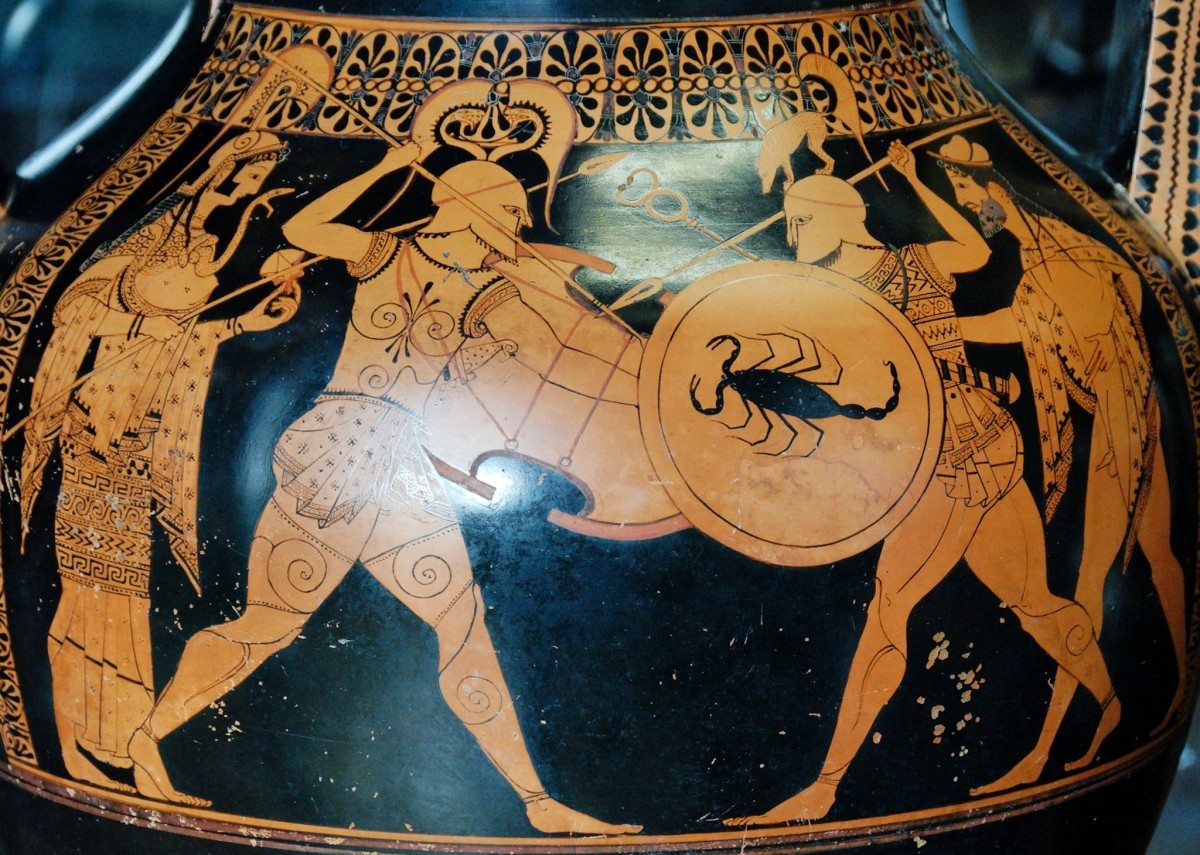
Socialistisk Biblioteks Tidslinje med links til begivenheder og personer i 507 før vor tid.
Se også Index over personer, organisationer/partier og værker (som bøger, malerier, mm.), steder, begivenheder, mv., der er omtalt på hele Tidslinjen, titler og indhold på emnelisterne osv.
507 f.v.t.
Athens demokrati er det bedst kendte eksempel i verdenshistorien på et forsamlingsdemokrati i en selvstændig stat af større betydning. Det blev indført i 507 f.v.t., og afskaffet i 322 f.v.t.
Leksikalt + artikler:
- Athens demokrati (Denstoredanske.dk)
- Det athenske demokrati (Wikipedia.dk)
- Athenian democracy (Wikipedia.org)
Antikkens Grækenland – en dynamisk slaveøkonomi. Af Anders Bæk (Socialistisk Arbejderavis, nr. 370, 27. januar 2019) (Almindelige menneskers historie, del 4). “Perioden med store sociale omvæltninger og klassekamp, er også bestemmende for antikkens berømte litteratur, filosofi og videnskab. Samfund i opbrud giver grundlag for [at] stille spørgsmålstegn ved det bestående.”
Articles:
The Greek democratic revolution + The Macedonian Empire. Part 14 + 15 in Neil Faulkner: A Marxist History of the World (Counterfire, 19 September + 27 September 2010). “Neil Faulkner looks at the radical participatory democracy which began in Athens between 510 and 506 BCE and spread to virtually every city-state in the Aegean.”
G. E. M. de Ste Croix’s Marxist history of Greece and Rome. By Kostas Vlassopoulos (Jacobin, January 8, 2025). “British historian G. E. M. de Ste Croix applied Marxist class theory to the history of the ancient world.”
G.E.M. de Ste Croix: A lifelong empathy with the oppressed. By Ann Talbot (World Socialist Web Site, 21 March 2000). “De Ste Croix’s class analysis allows him to offer a coherent and materialist explanation of the decline and fall of the Roman Empire.”
See also Ann Talbot: An exchange on G. E. M de Ste. Croix, historian of Ancient Greek society (World Socialist Web Site, 8 April 2000).
Every cook can govern: A study of democracy in Ancient Greece: its meaning for today. By C.L.R. James (Correspondence, Vol.2, No.12. June 1956; online at Marxists Internet Archive). “At its best, in the city state of Athens, the public assembly of all the citizens made all important decisions on such questions as peace or war.”
Den athenske stats oprindelse. Kapitel 5 i Friedrich Engels:
Familiens, privatejendommens og statens oprindelse (1884) (Marx/Engels: Udvalgte skrifter, bind 2. Forlaget Tiden, 1973, s.167-326)
Slave society (Marxists Internet Archive; Glossary of terms)
Litteratur:
Det athenske demokrati – og vores. Af Mogens Herman Hansen (Museum Tusculanums forlag, 2008, 204 sider)
The Class Struggle in the Ancient Greek World: From Archaic Age to the Arab Conquests. By G.E.M. de Ste. Croix (Duckworth, 1981, 732 p.; online at Libcom.org) + A Summary of … (LibCom.org).
See also Jack Conrad: History man: Explaining decline and fall (Weekly Worker, Issue 323, February 17, 2000). “De Ste Croix set out to survey and analyse the class struggle in the Greek world …”
Se også:
The Ellen Meiksins Wood Reader (pdf). Edited by Larry Patriquin (Haymarket, 2012; online at Digamo.free.fr). Scroll down to chapter two: ‘Precapitalist societies’ (p.62-91).
Se også på Socialistisk Bibliotek:
- Personlisten: Ellen Meiksins Wood (1942-2016).
- Tidslinjen: 476 før vor tid, om det romerske “verdensrige”.
- Tidslinjen: 8. februar 1910, om historikeren G.E.M. de Ste. Croix



































